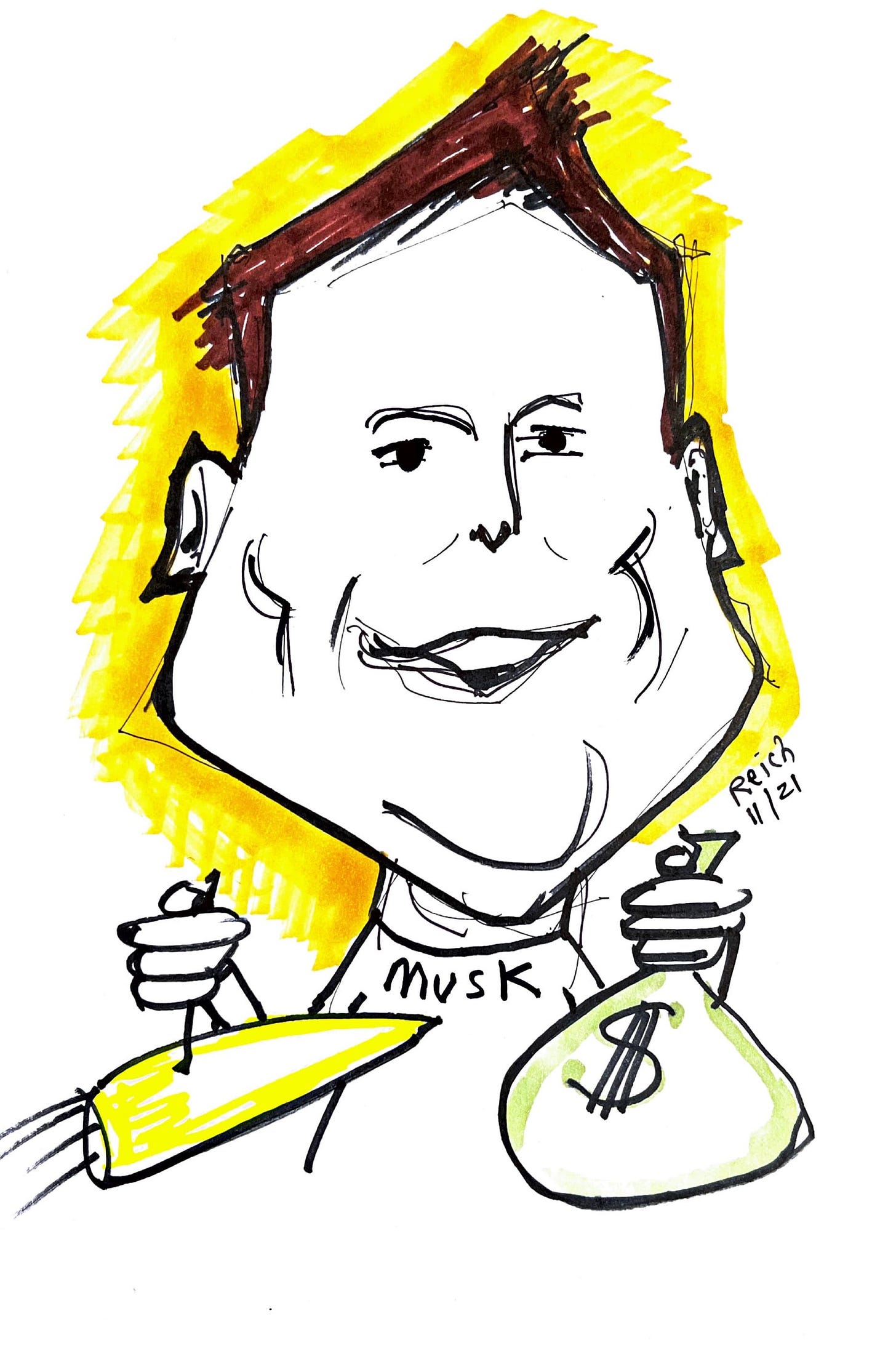Elon Musk struck a deal today to buy Twitter for roughly $44 billion, in a victory by the world’s richest man. Twitter agreed to sell itself to Musk for $54.20 a share, a 38 percent premium over the company’s share price this month before he revealed he was the firm’s single largest shareholder. Twitter’s founder and top managers had offered Musk a seat on the board but he didn't take it because he'd have to be responsible to all other shareholders. Now, he doesn’t have to be accountable to anyone.
Hey, it’s a free market, right?
Musk says no one should object to what he wants to do with Twitter because he’s a “free speech absolutist,” and who can be against free speech? Besides (he and his apologists say) if consumers don’t like what he does with Twitter, they can go elsewhere. Freedom to choose.
Free market? Free speech? Free choice?
When billionaires like Elon Musk justify their motives by using “freedom,” beware. They actually seek freedom from accountability. They want to use their vast fortunes to do whatever they please — unconstrained by laws or regulations, shareholders, even consumers.
The “free market” increasingly reflects the demands of big money. Unfriendly takeovers, such as Musk threatens to mount at Twitter, weren’t part of the “free market” until the late 1970s and early 1980s. Before then, laws and regulations constrained them. Then came corporate raiders like Carl Icahn and Michael Milken. Their MO was to find corporations whose assets were worth more than their stock value, borrow against them, acquire enough shares to force them to cut costs (such as laying off workers, abandoning their communities, busting unions, and taking on crushing debt), and cash in. But the raiders’ antics often imposed huge social costs. They pushed America from stakeholder capitalism (where workers and communities had a say in what corporations did) to shareholder capitalism (where the sole corporate goal is to maximize shareholder value). Inequality skyrocketed, insecurity soared, vast swaths of America were abandoned, and millions of good jobs vanished.
The raiders altered the “free market” to allow them to do this. That’s what the super-rich do. There’s no “free market” in nature. The “free market” depends on laws and rules. If you have enough money, you can lobby (bribe) legislators to make changes in those laws and rules that make you even more money. (You can also get the government to subsidize you — Musk has received a reported $4.9 billion so far.)
"Free speech" is another freedom that turns on wealth. As a practical matter, your ability to be heard turns on the size of the megaphone you can buy. If you’re extremely rich you can purchase the Washington Post or own Fox News. If you’re the wealthiest person in the world you can buy one of the biggest megaphones in the world called Twitter — and then decide who can use it, what its algorithms are going to be, and how it either invites or filters out big lies.
Musk said last week that he doesn’t care about the economics of the deal and is pursuing it because it is "extremely important to the future of civilization." Fine, but who anointed Musk to decide the future of civilization?
Consumers of social don’t have much freedom of choice. If consumers don’t like what Musk does with Twitter, they cannot simply switch to another Twitter-like platform. There aren’t any. The largest social media platforms have grown gigantic because anyone who wants to participate in them and influence debate has to join them. After they reach a certain size, they’re the only megaphone in town. Where else would consumers go to post short messages that can reach tens of millions of people other than Twitter?
With social media, the ordinary rules of competition don’t apply. Once a platform is dominant it becomes even more dominant. As Donald Trump discovered with his "Truth Social" fiasco, upstarts don’t stand much chance.
Musk's real goal has nothing to do with the freedom of others. His goal is his own unconstrained freedom -- the freedom to wield enormous power without having to be accountable to laws and regulations, to shareholders, or to market competition — which is why he's dead set on owning Twitter.
Unlike his ambitions to upend transportation and interstellar flight, this one is dangerous. It might well upend democracy.
What do you think?






















When billionaires talk about freedom, watch your wallets